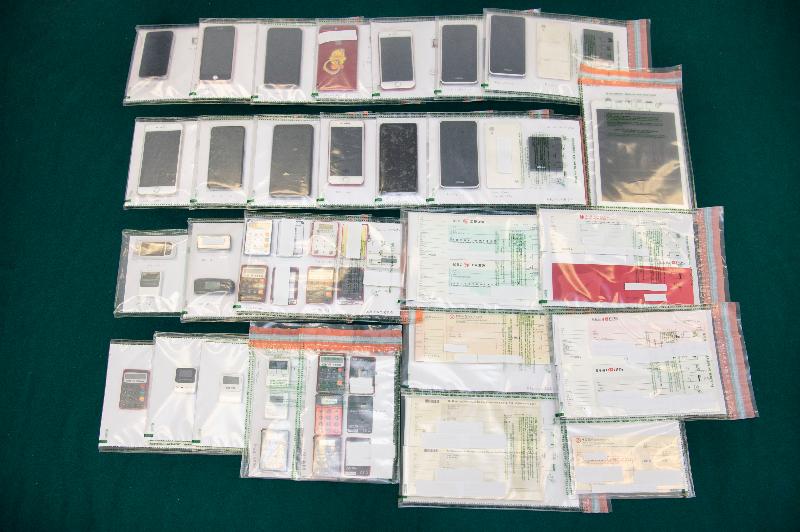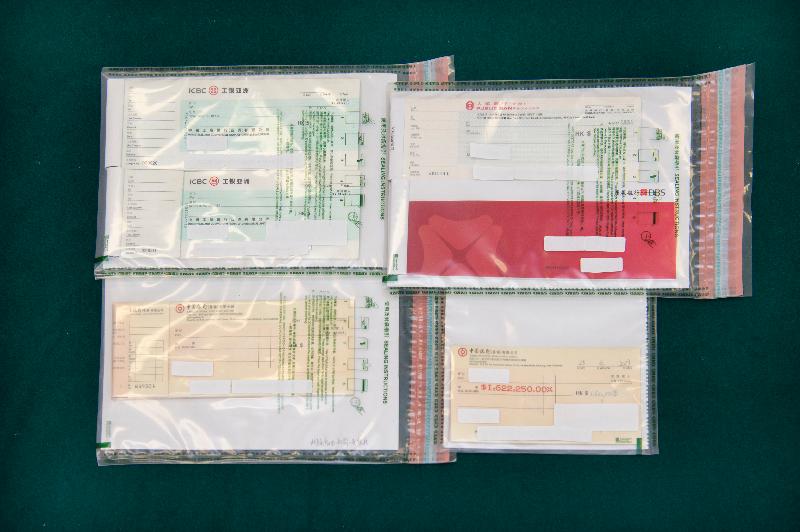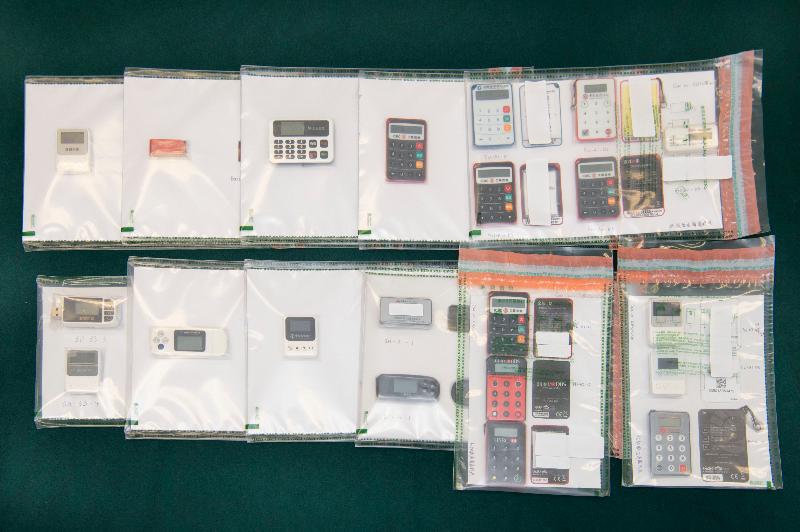Hong Kong Customs cracks down on largest money laundering case in its history involving over $3 billion (with photos)
​Hong Kong Customs mounted an operation codenamed "Shadow Hunter" in September and successfully smashed a large-scale money laundering syndicate involving a family of five and a money changer. The amount involved in the case was over $3 billion, which is the largest ever among similar cases handled by Customs. A total of six local persons were arrested during the operation. Customs has already arranged to freeze a total of $30 million of assets held by the arrested persons and suspended the licence of the money service operator (MSO) involved. The amount involved in the case is the largest ever among similar money laundering cases detected by Customs.
Customs officers identified a suspected money laundering syndicate earlier this year and initiated a financial investigation. After months of in-depth investigations, Customs deployed 30 officers on September 10 to raid four residential premises and a licensed money changer in Sheung Wan. Four men and two women aged between 25 and 62 and suspected to be involved in the case were arrested for conspiring to "deal with property known or reasonably believed to represent proceeds of an indictable offence" (commonly known as money laundering). Five of them are family members while the remaining one is the licensee of a money changer.
Initial investigation revealed that the family involved in the case had opened more than 100 personal bank accounts in various local banks to deal with over $3 billion of suspected crime proceeds since 2018, in which $170 million was related to the money changer licensee.
Investigations also showed that the background and the financial status of the family members involved were highly incommensurate with the large-value transactions of their personal bank accounts. Customs has frozen a total of about $30 million of assets held by the arrested persons, including about $15 million in bank deposits and two properties with net asset values of approximately $7 million and $8 million.
The arrested money changer licensee was suspected to have conspired to participate in money laundering activities together with the family members involved. It is not ruled out that the money changer had used personal bank accounts of third parties to deal with large-value transactions from unknown sources, in an attempt to use the money changer company to disguise the money laundering activities. The MSO licence of the money changer was suspended on September 11.
Customs has seized a batch of computers, mobile phones, banking security authentication tokens and signed cheque books from the residential premises and money changer involved in the case.
Investigation is ongoing. All arrested persons have been released on bail and the likelihood of further arrests is not ruled out.
Customs stressed to members of the public that they risk committing the crime of money laundering if they use personal bank accounts to deal with money from unknown sources, regardless of whether monetary reward is involved.
Under the Organized and Serious Crimes Ordinance, a person commits an offence if he or she deals with any property knowing or having reasonable grounds to believe that such property in whole or in part directly or indirectly represents any person's proceeds of an indictable offence. The maximum penalty upon conviction is a fine of $5 million and imprisonment for 14 years while the crime proceeds are also subject to confiscation.
Under the Anti-Money Laundering and Counter-Terrorist Financing Ordinance (AMLO), licensed MSOs must abide by the regulations under the AMLO. A person who contravenes the regulations is liable on conviction to a maximum penalty of a $1 million fine and seven years' imprisonment.
Members of the public may report any suspected money laundering activities or violation of the AMLO to Customs' 24-hour hotline 2545 6182 or its dedicated crime-reporting email account (crimereport@customs.gov.hk).


